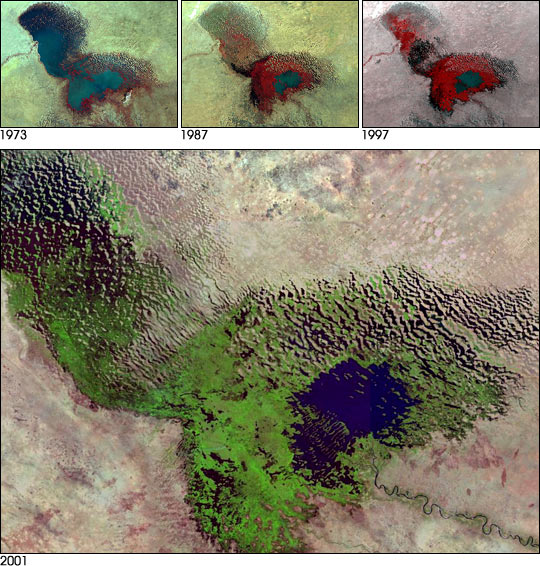Podcast: Play in new window
BOB HIRSHON (host):
Pollution’s far-reaching impacts. I’m Bob Hirshon and this is Science Update.
Between the 1960s and the 1980s, Central Africa suffered from severe droughts, which led to the death of tens of thousands of people. Once blamed on poor land management, new research suggests that pollution in the Northern Hemisphere, coupled with a change in ocean temperatures, was largely responsible for the water shortage. University of Washington atmospheric scientist Dargan Frierson says that sulfur emissions from coal-burning plants in Europe and the United States dirtied the air, cutting down on the amount of sunlight reaching earth, which caused the Northern Hemisphere to cool. That, in turn, resulted in decreased rainfall in Central Africa.
DARGAN FRIERSON (University of Washington):
It shows how things happening in one part of the climate system spreads to other places and has a non-local impact.
HIRSHON:
Frierson says clean air legislation largely curbed emissions by 1990, reversing the drought in Africa. I’m Bob Hirshon, for AAAS, the science society.


 Podcast for 28 June 2013
Podcast for 28 June 2013